A Conversation with Bruce Duffie
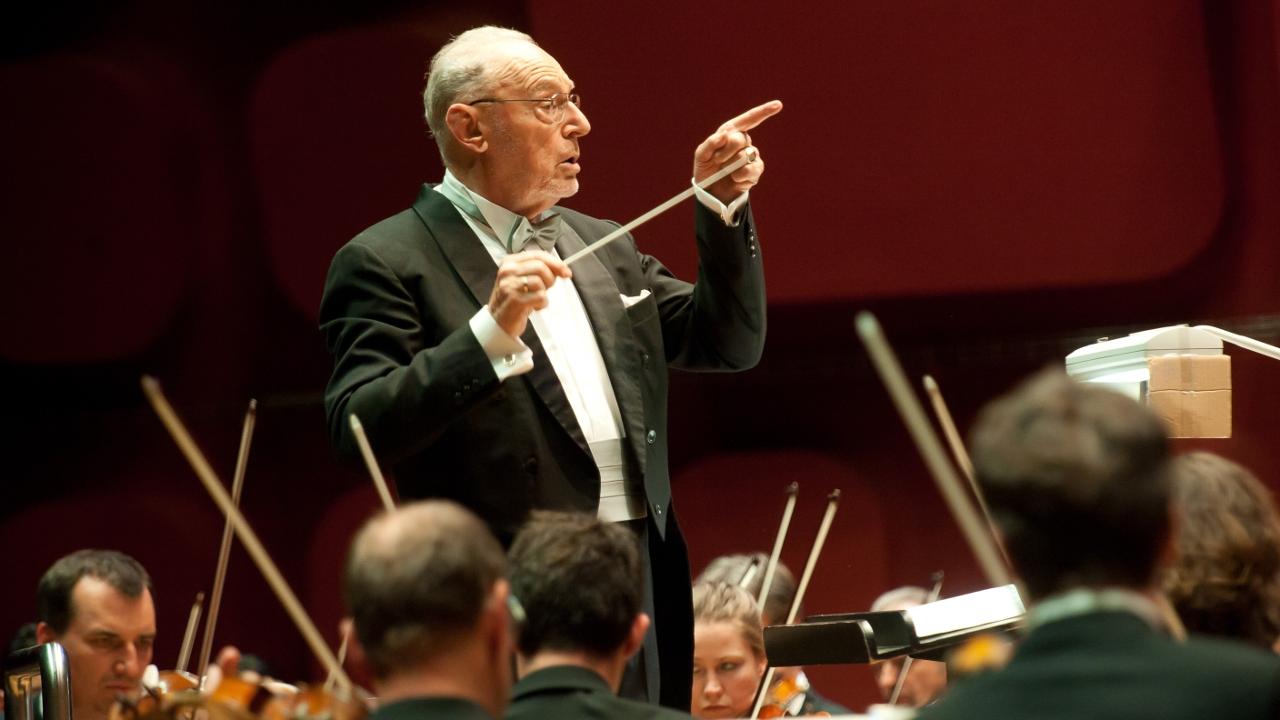

| The German conductor, Micael (Andreas) Gielen (July 29, 1927 - ), is the son of the theatrical director Joseph Gielen. He studied under Erwin Leuchter in Buenos Aires (1942-1949), then under Josef Polnauer in Vienna (1950-1953). An excellent pianist, Gielen made his debut in 1949 in Buenos Aires and played the complete piano works of Arnold Schoenberg in concert cycles. He became a répétiteur at the Teatro Colón, then went to the Vienna Opera as a répétiteur (1950-1952) and conductor (1952-1960). From 1960 to 1965, Gielen was the principal conductor of the Stockholm Opera. In 1965 he conducted the first performance of one of the major operas of the 20th century in Cologne, Die Soldaten by Bernd Alois Zimmermann. 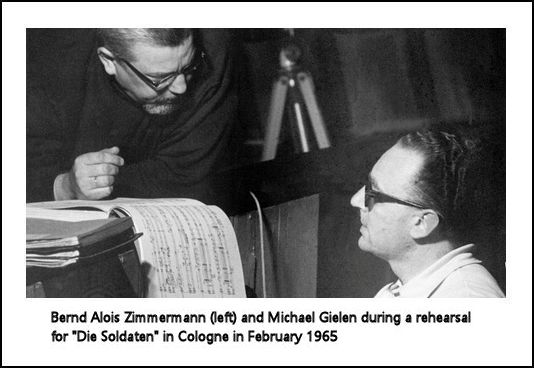
From 1969 to 1972 he was the principal conductor of the Belgian National Orchestra, and from 1969 he was a permanent guest of the South German Radio Symphony Orchestra. From 1972 to 1975 he was the director of the Dutch National Opera. From 1977 to 1987 he was the chief musical director in Frankfurt, and in the same period from 1980 to 1986 he was the Musical Director of the Cincinnati Symphony Orchestra. In 1979 he also became the principal guest conductor of the BBC Symphony Orchestra, London. In 1986 he took on the directorship of the SWR Sinfonieorchester BadenBaden & Freiburg. He also taught orchestral conducting at the Salzburg Mozarteum until he became an emeritus professor in 1995. Gielen was a particularly keen proponent of the music of his contemporaries, and his first performances included Dramatic Scenes from Orpheus by Hans Werner Henze (1982), D'un opéra de voyage (1967) by Betsy Jolas, Requiem (1965) and Ramifications (1st version, 1969) by György Ligeti, Zwei Stücke (1978) by Detlev Müller-Siemens, L'Effacement du prince Igor (1971) by Henri Pousseur, Carré and Mixtur (1965) by Karlheinz Stockhausen, Symphonic scene (1961) and Namo (1971) by Isang Yun, Die Soldaten (1965) and Requiem für einen jungen Dichter (1969) by Bernd Alois Zimmermann. A tour with this work in 1995 took him through Austria, Britain, France and Germany. His own compositions often followed on from the Second Vienna School. -- Throughout this page, names which are
links refer to my Interviews elsewhere on my website. BD
|
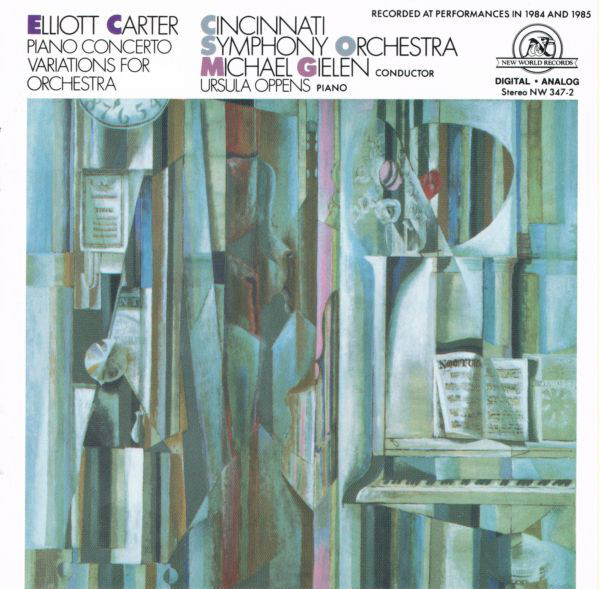 Michael Gielen: I’ve done both all my professional
life. I started as a coach in the Teatro Colón in Buenos
Aires when I was only twenty, assisting Erich Kleiber, then Furtwängler,
and Böhm. I started to conduct very late. I came back
to Vienna after the War in 1951, and was a coach at the Vienna State Opera.
I was twenty-seven years old when I conducted for the first time
in concert, and two years later I had a debut at the Vienna State Opera.
Since then both things have gone parallel and together all the time.
If you ask me what is the difference, maybe opera is more exciting in the
sense that you never know whether the curtain will go up, and whether the
soprano is going to be on stage. [Both laugh] You never know
what else can happen. In concert things are little more assured.
Michael Gielen: I’ve done both all my professional
life. I started as a coach in the Teatro Colón in Buenos
Aires when I was only twenty, assisting Erich Kleiber, then Furtwängler,
and Böhm. I started to conduct very late. I came back
to Vienna after the War in 1951, and was a coach at the Vienna State Opera.
I was twenty-seven years old when I conducted for the first time
in concert, and two years later I had a debut at the Vienna State Opera.
Since then both things have gone parallel and together all the time.
If you ask me what is the difference, maybe opera is more exciting in the
sense that you never know whether the curtain will go up, and whether the
soprano is going to be on stage. [Both laugh] You never know
what else can happen. In concert things are little more assured.
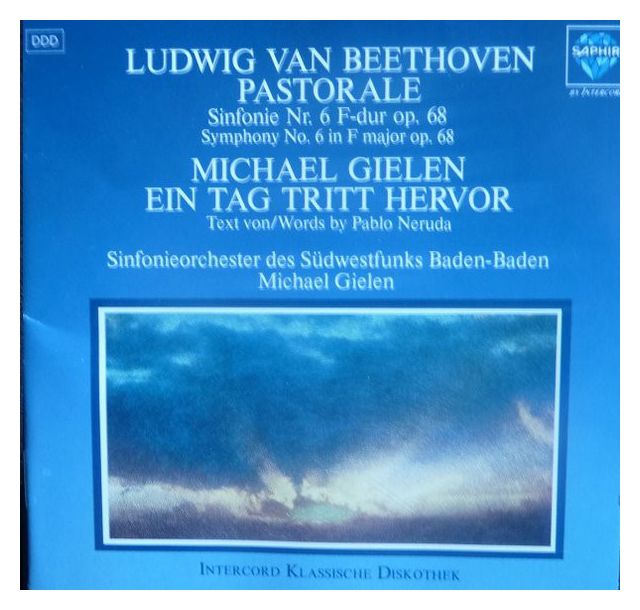 BD: You’ve mentioned modern music,
and you are also a composer. Does that make you a better conductor?
BD: You’ve mentioned modern music,
and you are also a composer. Does that make you a better conductor?
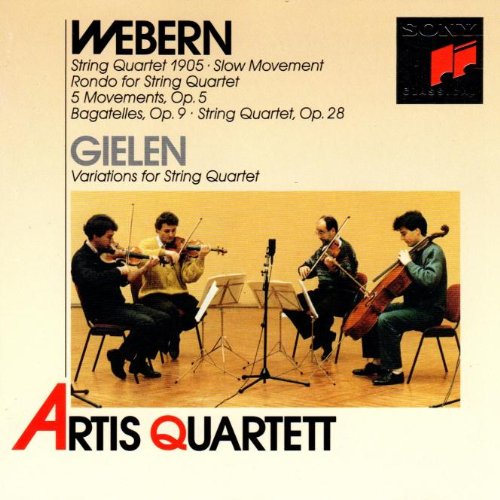 BD: When you’re writing with the pencil, does the pencil
lead your hand across the page, or are you controlling where that pencil
goes all the time?
BD: When you’re writing with the pencil, does the pencil
lead your hand across the page, or are you controlling where that pencil
goes all the time?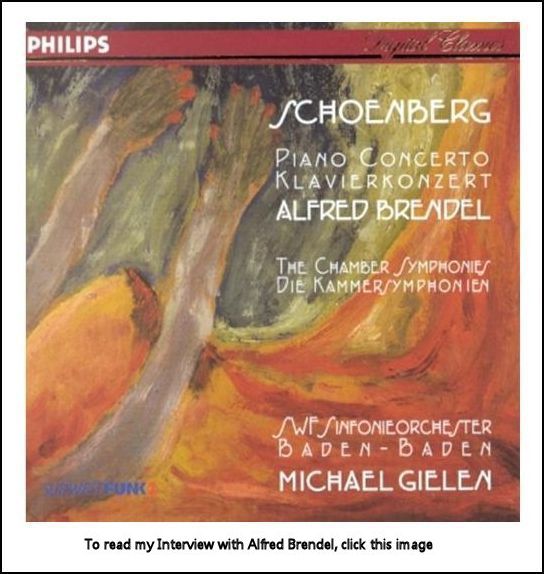 MG: What’s the difference? [Laughs]
MG: What’s the difference? [Laughs]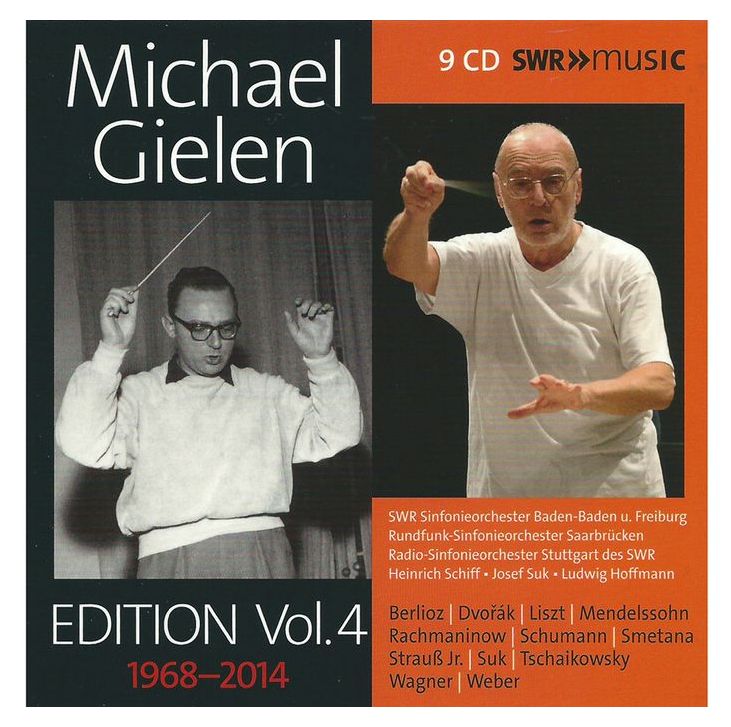 MG:
I don’t want to, but somehow the recording should be, or is intended to
be, flawless — no
wrong notes, no wrong rhythms, all the dynamics right, and so on.
During the process of recording, of taking small passages maybe three times
and correcting this and that, automatically everything becomes more rigid.
The spontaneity of a concert performance, when you’re in a good mood
and in good health, and you think the audience is going to follow and the
orchestra been rehearsed well, this spontaneity in the recording is often
lost. That’s why I appreciate very much now the industry that takes
live recordings. Maybe there are a few corrections from a second
performance, but fundamentally the basis of the whole record is a live
performance. This is a very good idea, but obviously in a recording
you can cut and splice, and get something that is technically accurate.
MG:
I don’t want to, but somehow the recording should be, or is intended to
be, flawless — no
wrong notes, no wrong rhythms, all the dynamics right, and so on.
During the process of recording, of taking small passages maybe three times
and correcting this and that, automatically everything becomes more rigid.
The spontaneity of a concert performance, when you’re in a good mood
and in good health, and you think the audience is going to follow and the
orchestra been rehearsed well, this spontaneity in the recording is often
lost. That’s why I appreciate very much now the industry that takes
live recordings. Maybe there are a few corrections from a second
performance, but fundamentally the basis of the whole record is a live
performance. This is a very good idea, but obviously in a recording
you can cut and splice, and get something that is technically accurate.
© 1996 Bruce Duffie
This conversation was recorded backstage at Orchestra Hall in Chicago on March 22, 1996. Portions were broadcast on WNIB the following year. This transcription was made in 2017, and posted on this website at that time. My thanks to British soprano Una Barry for her help in preparing this website presentation.
To see a full list (with links) of interviews which have been transcribed and posted on this website, click here. To read my thoughts on editing these interviews for print, as well as a few other interesting observations, click here.
Award - winning broadcaster Bruce Duffie was with WNIB, Classical 97 in Chicago from 1975 until its final moment as a classical station in February of 2001. His interviews have also appeared in various magazines and journals since 1980, and he now continues his broadcast series on WNUR-FM, as well as on Contemporary Classical Internet Radio.
You are invited to visit his website for more information about his work, including selected transcripts of other interviews, plus a full list of his guests. He would also like to call your attention to the photos and information about his grandfather, who was a pioneer in the automotive field more than a century ago. You may also send him E-Mail with comments, questions and suggestions.